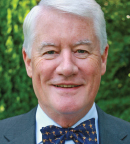The Cancer Drug Development Forum exists to provide, as the name implies, a meeting place to bring together academia, the pharmaceutical industry, and most important regulators for full and frank discussions to facilitate anticancer drug development. In the recent past, the Cancer Drug Development Forum workshops have proved highly successful in providing a better understanding of the hurdles, difficulties, and solutions to problems for the various parties concerned. And a recent meeting in London (February 4 and 5) at the European Medicines Agency was no exception. This joint meeting between the Cancer Drug Development Forum and the European Medicines Agency was hosted at the latter’s headquarters, and a packed room of 120 people was joined by 1,000 delegates in real-time online, for 2 days of discussion specifically to address regulatory issues concerning new immunotherapies.
Refreshingly, it was clear to everyone that the regulators from both the European Medicines Agency and the U.S. Food and Drug Administration (FDA) are genuinely committed to enhance their understanding of this new approach to cancer treatment and to expedite appropriate licenses as quickly and efficiently as possible. There was a true sense of collegiality between the regulators and drug developers from industry and academia along with a genuine commitment to enhance the involvement of patients and their physicians in the whole process.
Immunotherapy has attracted a great deal of attention in the media, inevitably highlighting expectations of success among the public at large. Although many unquestionably accept the success of immunotherapy, it was acknowledged that only 30% of patients derive benefit, and together with the long duration of response seen for some of these patients, the regulators made a specific plea for work to identify the subgroups of patients that will benefit vs those that will not. The research community fully endorsed this need, and similarly representatives of the payers (health technology assessors) and the patient advocates emphasized the need to prevent inappropriate exposure of patients to treatment from which they are unlikely to derive benefit. Until possible responding subgroups are more clearly identified, the European Medicines Agency spokespeople emphasized their request to improve the way in which “product information” reflects the uncertainty of benefit for the sake of patients and health technology assessors.
Focus on Biomarkers
The meeting focused on three specific areas: biomarkers, endpoints, and quality-of-life issues. The biomarkers discussion highlighted the need to develop markers in blood as opposed to tumor tissue, not least to provide biomarker information over time. Presentations on melanoma and non–small cell lung cancer focused on the expression of programmed cell death protein 1 (PD-1) and programmed cell death ligand (PD-L1), emphasizing the problem of heterogeneity of expression both between patients but even within different areas of a tumor in the same patient. The problem of using PD-L1 expression for prediction of response is compounded by the fact that there are at least six different assays in use for this single biomarker, with uncertainty about whether they deliver the same results and therefore the need of quality assurance—both for the test and the pathologists who interpret the results.
Turning to Endpoints
The discussion on endpoints inevitably included the arguments over overall vs progression-free survival. Specifically in the adjuvant setting—and recognizing the long duration of response for successfully treated patients—there was a clear plea for progression-free survival, but interestingly this was rejected by some of the health technology assessors. For regulators to make decisions in real-time, looking at other variables may be more pragmatic than waiting for overall survival.
Much of the discussion about endpoints concentrated on the inappropriate use of conventional response criteria such as RECIST (Response Evaluation Criteria in Solid Tumors), specifically where initially responding patients may experience an increase in the size of lesions due to a positive immune response. There was criticism of the immune-related RECIST criteria identifying the need for further work to develop a uniform definition of these criteria.
The need to identify responders from nonresponders overlapped all the discussions, but from the regulators’ perspective, there were specific requests for a better understanding of the more unusual toxicities seen with immunotherapy and whether or not such toxicities correlate with patients’ pretreatment immune status and therefore subsequent response. Development of pneumonitis, arthralgia, colitis, hypophysitis, and hypothyroidism are recognized as side effects that are less familiar to some investigators and regulators, and there were reports of variable quality in the documentation of these “new” toxicities.
Quality-of-Life Issues
Patient involvement in reporting toxicities led to some very interesting discussions on quality-of-life documentation. Where quality-of-life studies have played a variable role in the assessment of conventional anticancer medicines, there was agreement among the experts at this meeting that there is a real necessity to improve the way we involve patients in reporting their experiences with these new immunotherapies. Overly complex questionnaires can be demoralizing, and therefore unsuccessful, and the question of how long to pursue quality-of-life data for individual patients was highlighted as debatable.
Representatives of the FDA showed enthusiasm for patient-reported outcomes, and both regulators and health technology assessors recommended attempts to gather composite endpoints in clinical trials, including response, survival, toxicities, and patient-reported outcomes. Such an approach was especially welcomed by the payers present.
This meeting was remarkable for the genuine sense of willingness to collaborate from all the parties represented, and the Cancer Drug Development Forum will take forward the expressed request to hold future workshops to go into greater detail about biomarkers, endpoints, and quality-of-life issues. Further details of the London meeting together with information on future meetings of the Cancer Drug Development Forum are available on its website (www.cddf.org). ■
Disclosure: Dr. Smyth is on the advisory board of Ziopharm Oncology, a biopharmaceutical company in Boston; and an advisor to TG Biopharm, UK.


